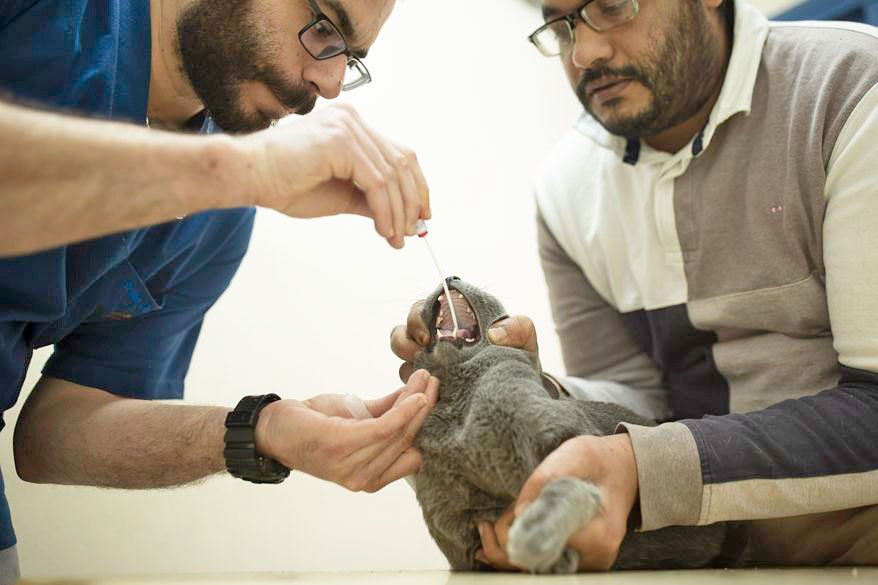“We have a strong suspicion of transmission from human to pet, not vice versa”, said a vet. There is no need to panic but to listen and learn. Knowledge is useful when used properly. There is news out that some vets believe that there is a link between a variant of the Covid-19 virus and an increase in heart problems in cats and dogs.

Vets at a specialist animal hospital in Buckinghamshire have seen an increase in myocarditis (heart inflammation) in pets. And they believe people are giving their pets the disease but not vice versa. This seems to reflect the news that zookeepers have given the disease to the animals in their charge such as tigers (remember Bronx Zoo?).

It is suggested that vets should test pets if there is a case of a Covid infection in their owners. The advice comes from Luca Ferasin, a cardiologist at the Ralph Veterinary Referral Centre (RVRC) in Marlow, Buckinghamshire. Luca lead a research study on this but the findings are preliminary as it has yet to be peer reviewed. The study is titled: “Myocarditis in naturally infected pets with the British variant of COVID-19”.
It concerns a British variant of the disease labelled: B117 (British B.1.1.7). They found that the handlers of the cats and dogs had contracted the disease 3-6 weeks before their pets became ill. The research found that companion animals can be infected with British B.1.1.7. This is a highly transmissible variant.
It is the dominant variant in the UK. I believe it is referred to as the Kent variant. It might be the world’s most dominant strain of this disease.
The symptoms in cats and dogs are, as expected, respiratory: runny nose, sneezing, coughing and sometimes bacterial infection of the eyes.
Sadly, between December and February Luca Ferasin and his colleagues noticed a surge in the number of cats and dogs admitted to the RVRC with myocarditis. The numbers were ten times normal although quite a low absolute number at 18.
The animals had symptoms of lethargy, lack of appetite, shortness of breath and irregular heart beats. Two of the animals had fainted. They tested 11 for Covid and found that two cats and a dog tested positive for the virus while a further 2 cats and a dog had antibodies for the virus. They believe that more of the animals would have tested positive if they had been carried out earlier.
All the animals recovered bar one cat who was euthanised. This finding mirrors heart damage in some humans caused by the virus.
The link between the heart disease in pets and Covid is not yet clear. In Texas there was a reported case of the B117 variant infecting a cat and a dog. A cat was infected by the variant in Italy. In both cases the owner was also infected.
The reason for this post? To increase awareness that pets are vulnerable to contracting the disease from their owners so they should take precautions if they have it. And the disease can affect the heart. It can be serious.
P.S. In homes where there are cats and dogs can they transmit the disease between themselves? Well, you’ll be lucky to find a discussion on this on the internet but technically it is possible because the disease is zoonotic and can therefore cross the barrier between different species.

